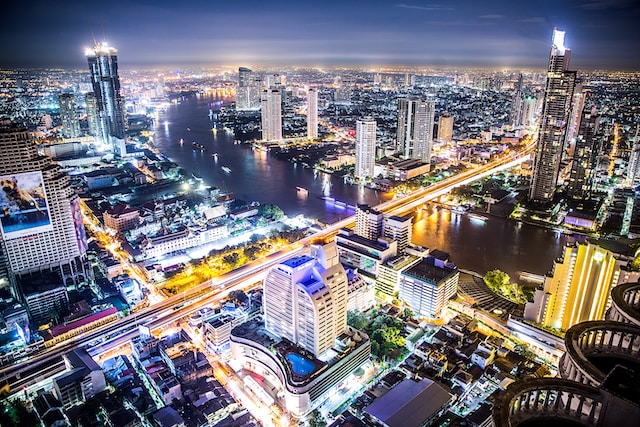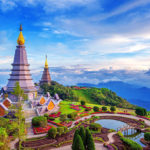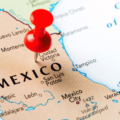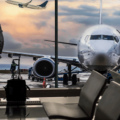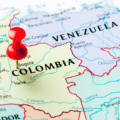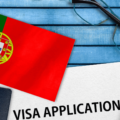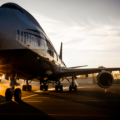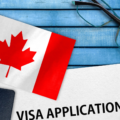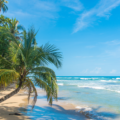Everything you need to know as a Digital Nomad in Bangkok, Thailand
Bangkok, the vibrant capital of Thailand, has fast become a haven for digital nomads seeking an affordable and culturally rich destination to work remotely.
With its low cost of living, high-speed internet connectivity and plethora of coworking spaces and cafes, Bangkok offers the perfect balance between work and leisure for modern professionals on the move.
This bustling metropolis seamlessly blends Western conveniences with traditional Thai charm, providing countless opportunities to expand your horizons both professionally and personally.
A Typical day in Bangkok…
As a digital nomad, Bangkok has always held a special place in my heart. The city’s vibrant energy, rich culture, and modern amenities make it the perfect destination for both work and play. So, allow me to share with you a glimpse into my adventures as a digital nomad in this captivating city.
I wake up early in my cozy apartment in Sukhumvit, ready to embrace the day. The sun peeks through the curtains, casting a warm glow over the bustling streets below. After a quick cup of aromatic Thai coffee, I grab my laptop and head to a nearby co-working space, a hub for like-minded individuals from around the world.
The co-working space is a hive of activity, with freelancers, entrepreneurs, and remote workers focused on their projects. Surrounded by this inspiring atmosphere, I dive into my work, tapping away at my keyboard as the sounds of conversations and clinking coffee cups create a symphony of productivity.
As the afternoon rolls in, I decide to take a break and explore the city’s cultural wonders. I hop onto the BTS Skytrain and make my way to the majestic Grand Palace in the heart of Rattanakosin. Stepping into this historic complex feels like entering a different world. I wander among the intricate temples, mesmerized by the dazzling golden structures and the serenity that envelops the area.
After immersing myself in the grandeur of the Grand Palace, I stroll along the banks of the Chao Phraya River, captivated by the sights and sounds that line its shores. The longtail boats glide gracefully through the water, and the gentle breeze carries the aroma of delicious street food wafting from nearby stalls.
Unable to resist the temptation, I pause to sample some of Bangkok’s renowned street food. The sizzle of a hot wok catches my attention, and I indulge in a plate of sizzling Pad Thai. The combination of flavors — the tangy tamarind, the delicate balance of spices, and the freshness of the ingredients — dances on my taste buds, leaving me craving for more.
As dusk descends upon the city, I head to Chinatown, Yaowarat, to experience its vibrant nightlife. The bustling streets come alive with colorful lanterns, street performers, and the buzz of excited chatter. I navigate through the labyrinth of narrow lanes, exploring the countless stalls selling trinkets, exotic fruits, and mouthwatering delicacies.
With a satiated appetite, I join a group of fellow digital nomads at a trendy rooftop bar in Thonglor. The panoramic view of Bangkok’s glittering skyline is mesmerizing. Over a refreshing Thai cocktail, we exchange stories, ideas, and insights, forming bonds that transcend geographical boundaries.
Key Takeaways
- Bangkok is a great destination for digital nomads, offering low cost of living, high-speed internet connectivity and plenty of coworking spaces and cafes.
- To settle in as a digital nomad, look for affordable monthly rental options, get a local SIM card for seamless communication and familiarize yourself with Bangkok’s transportation systems to easily navigate the city.
- Digital nomads in Bangkok can ensure productivity by finding suitable workspaces with fast Wi-Fi connections, managing time zones efficiently and exploring top tourist attractions as well as hidden gems.
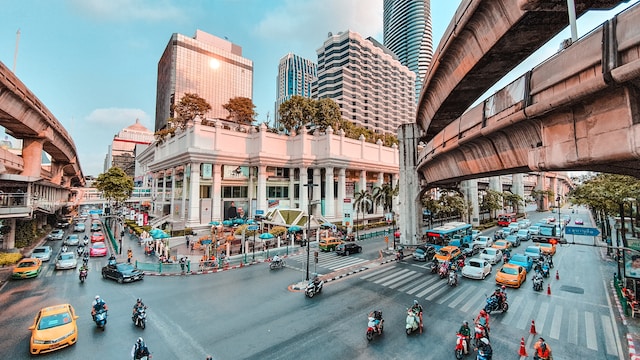
Getting Settled In Bangkok As A Digital Nomad
To find affordable accommodation, look for monthly rental options on websites like Airbnb and Facebook groups; sort out communication with a local SIM card by visiting any mobile shop or kiosk; understand transportation systems through apps like Grab and BTS Skytrain, and locate the best coworking spaces using platforms like WorkClub.
Finding Affordable Accommodation
Bangkok is well-known for its diverse range of accommodation options catering to the specific needs and budgets of digital nomads.
Affordable accommodation can be found in the form of budget-friendly hostels, which offer both dormitories and private rooms; serviced apartments that provide more space alongside essential amenities like high-speed internet; or platforms like Airbnb.
To score great deals on accommodations without compromising comfort or connectivity, browse online booking websites such as Agoda and Booking.com. Keep an eye out for promotions during low-demand periods or extended stays discounts.
Sorting Out Communication With A Local SIM Card
As a digital nomad in Bangkok, staying connected is essential for both work and leisure. One of the best ways to ensure seamless communication is by obtaining a local SIM card as soon as you arrive.
To obtain a Thai SIM card, head to one of the numerous mobile shops at the airport or in shopping malls across Bangkok. Choose from top providers like AIS, dtac or TrueMove H based on your requirements and preference.
Don’t forget to bring along your passport when making this purchase; it’s mandatory for registration purposes.
Understanding Transportation Systems
Bangkok, a bustling city known for its colourful street life and ornate shrines, boasts an impressive transportation system that is both affordable and easy to navigate.
The public transit network includes the highly efficient BTS Skytrain, which traverses key parts of Bangkok above ground; as well as MRT (Metropolitan Rapid Transit), an underground train popular among locals and expatriates alike.
Apart from these rail systems, numerous buses ply different routes throughout the city at low fares. If you’re feeling more adventurous or looking for a quintessential Thai experience, hop on Tuk-tuks – three-wheeled motorised rickshaws that are perfect for zipping through busy streets; just remember to agree on fares beforehand to avoid any haggling.
As a thriving digital nomad hub in Thailand, Bangkok offers seamless connectivity via its transport networks ensuring easy access to coworking spaces, cafes, tourist attractions as well as hidden local gems tucked away from mainstream thoroughfares.
Best time to visit Bangkok – Weather in Bangkok
Bangkok has a tropical climate, so it is warm and humid year-round. The best time to visit is during the cool season, which runs from November to February. During this time, the weather is dry and sunny, with average temperatures in the mid- to high-80s Fahrenheit. The rainy season runs from June to October, and while it can rain every day, the storms are usually short-lived. The hottest months are April and May, when temperatures can reach 100 degrees Fahrenheit.
Here are some of the things you can do in Bangkok during the different seasons:
-
- Cool season (November to February): This is the best time to visit Bangkok. The weather is dry and sunny, and there are fewer crowds. You can explore the city’s many temples and palaces, visit the floating markets, or take a boat trip down the Chao Phraya River.
- Rainy season (June to October): The rainy season is a good time to visit Bangkok if you are looking for a more affordable vacation. There are still plenty of things to do, and the city can be quite green and lush during this time. You can visit the Grand Palace, Wat Pho, and Wat Arun. Take a ride on the Skytrain or the BTS Skytrain. Visit the Chatuchak Weekend Market.
- Hot season (April and May): The hot season is the hottest time of year in Bangkok. The temperatures can reach 100 degrees Fahrenheit, and the humidity is high. It is important to stay hydrated and wear loose, lightweight clothing. You can visit the Grand Palace, Wat Pho, and Wat Arun. Take a ride on the Skytrain or the BTS Skytrain. Visit the Chatuchak Weekend Market. Go to a local restaurant and try some Thai food.
Finding The Best Co-working Spaces
As a digital nomad, finding a suitable workspace is crucial to staying productive and motivated. Bangkok has an array of options for coworking spaces, catering specifically to the needs of remote workers.
Hubba in Ekkamai is one of the first and most famous coworking spaces in Bangkok, offering affordable rates and a creative environment for freelancers and startups alike.
Coworking spaces provide digital nomads with flexibility in terms of working hours as well as access to reliable Wi-Fi connections that can help maintain work schedules across different time zones.
They also offer endless networking opportunities which can lead not only to future business collaborations but lifelong friendships too.
Working As A Digital Nomad In Bangkok
Ensure high-speed internet connectivity to stay productive, find suitable cafes and workspaces with good Wi-Fi connections, and manage time zones efficiently while enjoying the vibrant city life.
Ensuring High-Speed Internet Connectivity
As a digital nomad in Bangkok, ensuring high-speed internet connectivity is essential to your work productivity. Fortunately, the city has excellent internet infrastructure and many coffee shops and coworking spaces provide fast and reliable wifi.
It’s crucial that you test your internet speed before committing to any workspace or accommodation. According to recent studies, Thailand has some of the fastest internet speeds in Southeast Asia at an average download speed of 133 Mbps.
This means that you can easily upload large files or join video conference calls without interruptions while working from anywhere within Bangkok.
Finding Suitable Cafes And Workspaces
As a digital nomad in Bangkok, finding a suitable workspace is crucial to your productivity. Here are some top tips for finding the best cafes and workspaces:
- Use coworking websites: Websites like Coworker and Workfrom provide an extensive list of coworking spaces in Bangkok, complete with photos, prices, and reviews from other digital nomads.
- Check out cafes with free Wi-Fi: Many cafes in Bangkok offer free Wi-Fi as long as you buy something. Some of the best options include Starbucks, Coffee World, and Black Canyon Coffee.
- Look for quiet spaces: If you’re easily distracted by noise, look for a workspace that’s relatively quiet. Some popular options include The Hive Thonglor, Klique Desk Bar, and WOLF Workspace.
- Consider your budget: While some workspaces can be expensive, there are plenty of affordable options in Bangkok. For example, HUBBA Thailand has multiple locations across the city and offers day passes starting at just ฿300.
- Try before you commit: Many workspaces offer trial periods that allow you to test out their facilities before committing to a long-term contract. This is a great way to find the perfect workspace without committing to anything too soon.
Remember that many cafes and workspaces are welcoming to digital nomads and offer great facilities like high-speed internet and comfortable seating. Take advantage of these resources to ensure your productivity while working remotely in Bangkok.
Food in Bangkok
Bangkok, the vibrant capital city of Thailand, is a true paradise for food lovers. Renowned for its street food culture, Bangkok offers a wide array of delicious dishes that showcase the rich flavors of Thai cuisine as well as international culinary influences. From mouthwatering street stalls to high-end restaurants, here are some of the various food options available in Bangkok.
1. Pad Thai: One of Thailand’s most famous dishes, Pad Thai is a stir-fried noodle dish typically made with rice noodles, shrimp or chicken, eggs, tofu, bean sprouts, and flavored with tamarind paste, fish sauce, and lime. It’s often garnished with crushed peanuts and fresh herbs.
2. Tom Yum Goong: A hot and sour soup, Tom Yum Goong is a popular Thai soup made with shrimp, lemongrass, galangal, kaffir lime leaves, chili peppers, mushrooms, and a variety of aromatic spices. The combination of spicy, sour, and fragrant flavors makes it a favorite among locals and tourists alike.
3. Green Curry: Known for its vibrant green color and aromatic taste, Green Curry is a spicy Thai curry made with a paste of green chilies, lemongrass, galangal, garlic, and other herbs and spices. It is typically cooked with chicken, beef, or seafood and served with steamed rice.
4. Som Tam: A refreshing and spicy green papaya salad, Som Tam is a popular dish in Thailand. It combines shredded unripe papaya, cherry tomatoes, green beans, peanuts, garlic, chilies, lime juice, and fish sauce, creating a perfect balance of flavors.
5. Mango Sticky Rice: A must-try dessert in Bangkok, Mango Sticky Rice is a simple yet delightful dish. It features sweet sticky rice cooked in coconut milk and served with fresh ripe mango slices. The combination of the sweet rice and juicy mango is simply heavenly.
6. Massaman Curry: Hailing from southern Thailand, Massaman Curry is a rich and aromatic curry that reflects the influence of Indian and Malay flavors. It is made with tender chunks of meat (often beef or chicken), potatoes, onions, and roasted peanuts, simmered in a fragrant sauce made with coconut milk, tamarind, and various spices.
7. Grilled Meats (Moo Ping, Gai Yang): Bangkok’s street food scene is incomplete without grilled meats. Moo Ping (grilled pork skewers) and Gai Yang (grilled chicken) are popular choices. Marinated in a flavorful mixture of herbs and spices, these skewers are grilled to perfection and served with sticky rice and a tangy dipping sauce.
8. Thai Iced Tea: Bangkok’s tropical climate calls for a refreshing beverage, and Thai Iced Tea fits the bill perfectly. It is a sweet and creamy drink made with strongly brewed Ceylon tea, sweetened condensed milk, and served over crushed ice. The vibrant orange color and the creamy taste make it an irresistible choice.
9. Dim Sum: While not native to Thailand, Bangkok is home to many excellent dim sum restaurants. These bite-sized delicacies, originating from China, include steamed dumplings filled with various ingredients such as shrimp, pork, and vegetables. They are typically enjoyed with a cup of hot tea.
10. Street Food Snacks: Bangkok’s bustling streets are lined with countless food stalls offering a wide variety of snacks. From crispy fried spring rolls and savory satay skewers to flavorful noodle soups and spicy papaya salads, you can find a plethora of options to satisfy your cravings.
These are just a few examples of the diverse and delicious food available in Bangkok. Whether you explore the local street food scene or indulge in fine dining experiences, Bangkok promises a culinary adventure.
Cost of living in Bangkok
Bangkok is a relatively affordable city to live in, especially compared to other major cities in the world. A single person can live comfortably on a budget of around $600 per month, and a family of four can live on around $1,200 per month.
Here is a breakdown of some of the costs of living in Bangkok:
- Rent: A one-bedroom apartment in a central location will typically cost around $500 per month. You can find cheaper apartments in less central areas, or you can share an apartment with others to save money.
- Food: Eating out in Bangkok is very affordable. You can get a meal for around $2 at a street food stall, or $5-10 at a restaurant. If you cook at home, you can save even more money.
- Transportation: The public transportation system in Bangkok is very efficient and affordable. You can get around the city by bus, train, or taxi. A single bus ticket costs around $0.50, and a taxi ride within the city center costs around $2.
- Activities: There are many free and low-cost activities to enjoy in Bangkok. You can visit temples, museums, and parks, or take a boat ride down the Chao Phraya River. There are also many bars and clubs where you can enjoy a night out without spending a lot of money.
Overall, Bangkok is a very affordable city to live in. You can find a place to live, eat, and travel without breaking the bank.
Neighborhoods in Bangkok
Bangkok, the capital city of Thailand, is divided into various neighborhoods, each with its own distinct character and attractions. Here are some of the notable neighborhoods in Bangkok:
- Sukhumvit: Located in the heart of Bangkok, Sukhumvit is a bustling neighborhood known for its vibrant nightlife, upscale shopping malls, and a wide range of dining options. It is also a popular area for expatriates and tourists, offering a mix of luxury hotels, trendy bars, and international restaurants.
- Silom: Silom is another bustling neighborhood that combines business, entertainment, and shopping. It is home to Bangkok’s central business district and a vibrant nightlife scene, particularly around Patpong Night Market. Silom also offers excellent dining options, from street food stalls to upscale restaurants.
- Chinatown (Yaowarat): As the largest Chinatown in Thailand, Yaowarat is a vibrant and energetic neighborhood known for its bustling markets, traditional Chinese architecture, and authentic street food. Visitors can explore the maze-like alleys, sample delicious Chinese delicacies, and soak in the vibrant atmosphere.
- Old City (Rattanakosin): Rattanakosin is the historic heart of Bangkok and home to some of the city’s most iconic landmarks, including the Grand Palace, Wat Phra Kaew (Temple of the Emerald Buddha), and Wat Pho (Temple of the Reclining Buddha). This neighborhood offers a glimpse into Bangkok’s rich history and cultural heritage.
- Thonglor and Ekkamai: Thonglor and Ekkamai are trendy and upscale neighborhoods known for their hipster vibes, stylish cafes, boutique shops, and trendy nightlife venues. These areas attract a younger crowd and are popular for their lively entertainment scene and fashionable lifestyle.
- Dusit: Dusit is a leafy residential neighborhood that houses some of Bangkok’s most important institutions, including the Dusit Palace and the Ananta Samakhom Throne Hall. It is known for its wide avenues, green spaces, and serene atmosphere, offering a contrast to the bustling city center.
- Ari: Located slightly north of the city center, Ari is a laid-back and residential neighborhood that has gained popularity in recent years. It is known for its trendy cafes, quirky boutiques, and a wide range of restaurants serving both local and international cuisine. Ari is also home to charming local markets and is a favorite among the city’s younger crowd.
- Thonburi: Situated on the western banks of the Chao Phraya River, Thonburi offers a glimpse into the traditional and less explored side of Bangkok. This neighborhood is known for its canals (khlongs), historic temples, and local markets such as Khlong Lat Mayom Floating Market. Thonburi offers a more relaxed and authentic experience compared to the city center.
These are just a few of the many neighborhoods that make up the diverse tapestry of Bangkok. Each neighborhood has its own unique charm, attractions, and experiences, adding to the city’s vibrant and dynamic character.
Managing Time Zones
As a digital nomad in Bangkok, you may face time zone differences that require some strategic planning. It’s crucial to maintain communication with clients or team members in different time zones while still maintaining your own work schedule.
You can start by setting up your work hours around the most essential tasks or meeting times.
For example, if the majority of your clients are based in Europe or North America, consider shifting your workday to start earlier or later than usual. Additionally, make use of tools such as Timezone.io and WorldTimeBuddy to help visualize overlapping working hours and avoid scheduling conflicts.
Exploring Bangkok As A Digital Nomad
Discover the top attractions, hidden gems and cultural experiences Bangkok has to offer as a digital nomad.
Top Tourist Attractions To Visit
Bangkok is a city full of cultural and architectural wonders that digital nomads cannot afford to miss. Here are some of the top tourist attractions to visit:
- The Grand Palace – This iconic landmark features stunning architecture and intricate detail, making it one of the most visited attractions in Bangkok.
- Wat Phra Kaew – Located within the Grand Palace grounds, this temple houses the revered Emerald Buddha statue and is considered one of the most sacred sites in Thailand.
- Chatuchak Weekend Market – With over 8,000 stalls selling everything from souvenirs to street food, this market is a shopper’s paradise and offers a unique cultural experience.
- Khao San Road – Known as the backpacker hub, this busy street features budget-friendly accommodations as well as a bustling night market with live music and street food vendors.
- Wat Arun – Also known as the Temple of Dawn, this beautiful temple situated along the Chao Phraya River is best viewed during sunset when its glittering spires are illuminated.
- Jim Thompson House – This traditional Thai house turned museum showcases Thai silk production and offers an insight into Thai culture and architecture.
- Siam Paragon – One of Bangkok’s largest shopping centres with high-end fashion boutiques, gourmet restaurants, and state-of-the-art cinemas.
From ancient temples to bustling markets and modern shopping centres, Bangkok has something for everyone looking for adventure or restful times when they need to recharge their energy levels before starting another phase of their life journey as digital nomads.
Hidden Gems Only Locals Know About
If you’re a digital nomad in Bangkok, be sure to check out these hidden gems that only locals know about:
- Talad Rot Fai Night Market – a vintage-themed market with an array of street food and unique shopping stalls.
- Chao Phraya Riverboat Tour – a scenic boat ride through Bangkok’s canals, offering views of local life and ancient temples.
- Erawan Museum – a giant three-headed elephant statue that houses a museum showcasing Thai culture and history.
- Khlong Lat Mayom Floating Market – a more authentic floating market experience with fewer crowds than some of the other popular markets in Bangkok.
- Bang Krachao – also known as “Bangkok’s Green Lung,” this urban oasis is a great escape from the city’s bustle, featuring biking trails, parks, and waterfront restaurants.
- Siriraj Medical Museum – if you’re interested in medical oddities or just like things offbeat, this museum displays preserved body parts and exhibits on forensic science.
- Patara Elephant Farm – for animal lovers, this ethical elephant sanctuary offers hands-on experiences caring for elephants while learning about their conservation.
Don’t miss out on discovering these hidden gems during your time as a digital nomad in Bangkok!
Experiencing A Rich Cultural Heritage
As a digital nomad in Bangkok, you are in for a treat when it comes to experiencing the city’s rich cultural heritage.
One of the must-visit attractions is the Grand Palace, which dates back to 1782 and was once home to Thai kings. The complex boasts stunning architecture with intricate details that showcase Thailand’s artistic prowess.
Apart from these iconic landmarks, there are also numerous local markets where you can sample delicious street food while shopping for souvenirs.
Ultimately, as a digital nomad in Bangkok,you’ll get an authentic taste of Thai culture that few other places can offer while enjoying all the modern conveniences needed to work online efficiently.
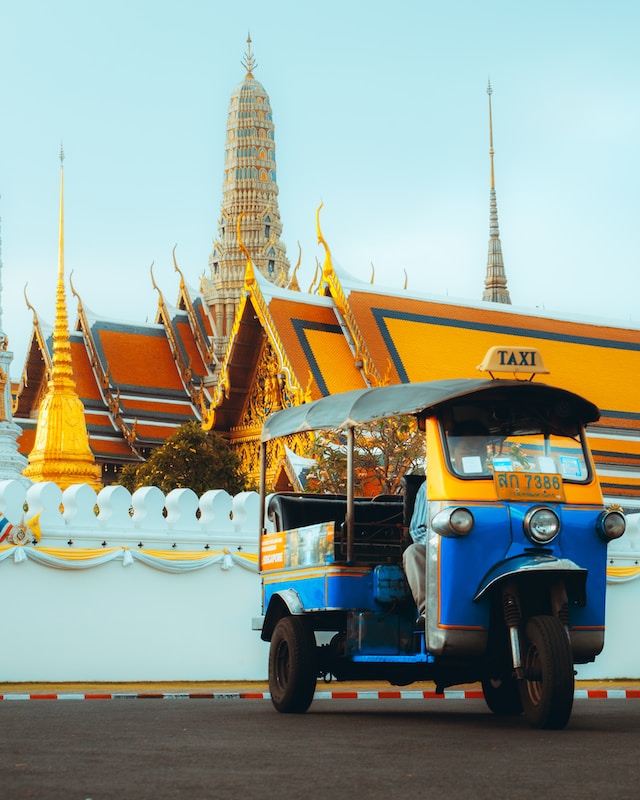
Staying Healthy And Active
Stay in shape while exploring Bangkok by finding fitness centres, healthy eateries and participating in wellness activities.
Finding Local Gyms And Fitness Centres
Keeping fit and healthy is an important aspect of being a digital nomad in Bangkok. Here are some tips for finding local gyms and fitness centres:
- Ask Locals: Ask local motorcycle taxi drivers or people at your co-working space for recommendations on local gyms. They may know of smaller, more affordable facilities that are not advertised online.
- TrainAway: TrainAway is a platform that can help you find and access gyms in Thailand, including Bangkok. You can purchase day passes or short-term memberships to try out different gyms during your stay.
- Check out Hotel Gyms: Many hotels offer gym facilities that non-guests can use for a fee. If you’re staying at a hotel without a gym, consider booking a day pass at a nearby hotel with one.
- Join Fitness Classes: Fitness classes are great for socializing and meeting like-minded people while staying active. Look into yoga studios, CrossFit gyms, or functional fitness classes around the city.
- Use Public Parks: Bangkok has many public parks with exercise equipment and jogging trails that are free to use. Lumphini Park and Benjakitti Park are popular choices among locals and tourists alike.
By following these tips, you can easily find local gyms and fitness centres in Bangkok to maintain your healthy lifestyle while working as a digital nomad in the city!
Exploring Healthy Eating Options
Staying healthy and eating nutritious food is essential as a digital nomad, especially if you’re constantly on the go. Thankfully, Bangkok offers plenty of options for health-conscious individuals looking to stay in shape and maintain their balanced diet.
One spot worth visiting is Broccoli Revolution, a trendy plant-based restaurant with an extensive menu that caters to different dietary needs. Another great option is Sustaina Organic Cafe & Shop, which offers organic coffee blends and smoothies made from locally sourced ingredients.
If you’re looking for fresh fruit and vegetables, head over to one of Bangkok’s many street markets like Or Tor Kor Market or Chatuchak Weekend Market – both offer an abundance of affordable fruits and veggies all year round.
Participating In Wellness Activities
Maintaining your health and wellness while working as a digital nomad in Bangkok is important. Here are some ways to participate in wellness activities:
- Join fitness groups: There are groups dedicated to hiking, yoga, and other fitness activities for digital nomads. You can find these groups on social media or through coworking spaces.
- Visit local gyms: Bangkok has a wide range of gyms catering to different budgets and fitness levels. Look for gyms that offer day passes or short-term memberships if you’re only staying for a short period.
- Try Muay Thai: Muay Thai is a popular martial art in Thailand and a great way to stay active and learn something new while you’re there. Many gyms offer classes specifically for beginners.
- Attend meditation classes: Bangkok has several meditation centres where you can learn about mindfulness techniques and practice meditation with like-minded individuals.
- Join wellness retreats: Wellness retreats are becoming increasingly popular in Bangkok, with various options ranging from one-day workshops to week-long retreats offering yoga, meditation, and other wellness activities.
Remember that maintaining your physical and mental wellbeing is crucial when living the digital nomad lifestyle. Being part of supportive wellness communities will help you maintain balance amid busy work schedules while experiencing the best of what Bangkok has to offer!
Nightlife And Entertainment
Experience Bangkok’s vibrant nightlife and entertainment scene, from the best bars and clubs to live music performances and authentic night markets.
Checking Out The Best Bars And Clubs
Bangkok is famous for its nightlife, and as a digital nomad, you’ll definitely want to check out the city’s exciting bars and clubs. Here are some of the best places to go:
- The Iron Fairies: This unique bar features a steampunk theme and live jazz music. It’s located in Thonglor, one of Bangkok’s trendiest neighborhoods.
- Sing Sing Theater: This club has a theatrical atmosphere with stunning decor inspired by Chinese opera. It offers a mix of electronic dance music and hip-hop.
- Ce La Vi Bangkok: Located on the top floor of Sathorn Square Building, this rooftop bar provides panoramic views of the city skyline. It has an extensive cocktail menu and often hosts international DJs.
- Maggie Choo’s: Housed in an old bank vault, this speakeasy-style bar is filled with vintage glamour. It offers live jazz music and cabaret-style performances.
- Route 66 Club: This nightclub in RCA (Royal City Avenue) is popular among local Thais and expats alike. It has multiple rooms playing different genres of music.
Remember to dress up when going out as Bangkok locals tend to dress up for a night out!
Experiencing Live Music And Performance Arts
Bangkok is a vibrant city with a diverse and exciting music scene. From Thai classical music to international jazz acts, there is plenty of live entertainment for digital nomads to enjoy.
One must-visit destination for music lovers is the Saxophone Pub in Victory Monument, which features nightly performances by local and international bands playing jazz, blues, funk, and more.
Besides these well-known venues, there are many other hidden gems that showcase Bangkok’s rich cultural heritage through live performances. The small but charming Jam Café in Sathorn hosts local artists performing alternative acoustic sounds while serving up some delectable drinks and food.
The iconic Numthong Gallery offers experimental theatre shows including visual art exhibitions from talented local artists on display along with their performance pieces.
Visiting Night Markets For An Authentic Thai Experience
One of the must-do activities for any digital nomad, tourist or expat in Bangkok is visiting its numerous night markets. These markets offer an authentic Thai experience with their carnival-like atmosphere, unique shopping opportunities and local snacks that are a feast for your taste buds.
Night markets like Chatuchak Weekend Market and Rot Fai Market attract crowds due to their variety of vendors selling everything from clothes, antiques, souvenirs to street food delicacies such as Pad Thai and Mango Sticky Rice.
The Thais love their nightlife so expect live music performances and cultural shows at these markets.
Bangkok is famous around the world for its electrifying energy at night time especially when it comes to entertainment options such as bars, clubs and nightclubs aimed towards tourists seeking something different than what they usually come across back home.
Thai Culture And Etiquette For Digital Nomads
Respectful behaviour and understanding cultural norms are important when living as a digital nomad in Bangkok.
Dress Codes To Respect Local Customs
Proper dress code is crucial in respecting local Thai culture and etiquette for digital nomads visiting Bangkok. While Thailand is a hot and humid country, it’s essential to remember that revealing clothing is considered disrespectful in the local culture.
As a general rule of thumb, conservative attire with muted colors works best. For men, light cotton shirts and trousers are appropriate, while women can opt for loose-fitting dresses or skirts that cover their knees.
It’s also worth keeping in mind that Thais tend to dress modestly and do not wear revealing clothing such as bikinis at beaches or swimming pools. Respectful behavior includes dressing appropriately when engaging with locals in everyday situations like shopping at markets or eating out at restaurants.
Greetings And Showing Respectful Behaviour
Thailand is a country with rich cultural traditions and customs, and as a digital nomad visiting Bangkok, it’s essential to understand the basics of Thai etiquette. The traditional Thai greeting known as the Wai involves pressing your palms together while bowing slightly.
Thais view this gesture as a friendly way of saying hello and showing respect to others.
It’s also worth noting that Thai people appreciate modesty when it comes to dress codes; avoid wearing revealing clothing or exposing too much skin while exploring local temples or other religious sites.
Understanding Cultural Norms And Customs
Living in Bangkok as a digital nomad means immersing yourself in a unique culture with its own set of norms and customs. It’s important to be aware of these cultural differences, so you don’t accidentally offend locals or get into trouble with the authorities.
For example, public displays of affection are frowned upon in Thailand, and it’s considered disrespectful to touch someone on the head or point your feet at them.
Another critical aspect of Thai culture that digital nomads should be aware of is “saving face.” This means avoiding confrontation or criticism that could cause embarrassment or loss of status for other people.
Finally, dressing appropriately in public spaces according to local customs is essential when visiting temples or government buildings. You may need to cover up shoulders and knees and remove shoes before entering some places.
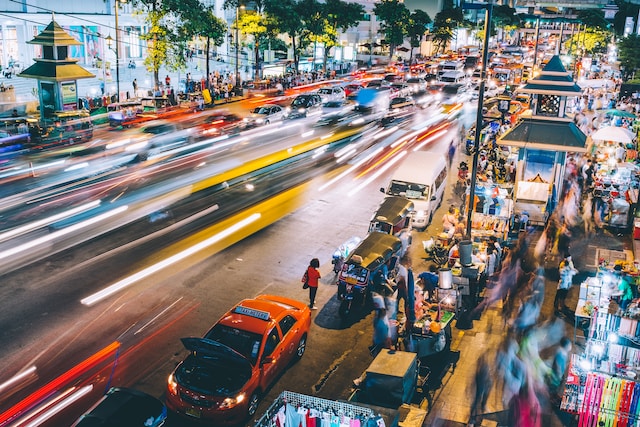
Visa And Legal Requirements For Digital Nomads
To ensure a smooth and stress-free stay in Bangkok, it’s essential for digital nomads to understand the visa requirements and legal regulations. From long-term visas to embassy registration, our guide covers all you need to know before embarking on your journey.
Visa Options For Long-Term Stay
If you are a digital nomad planning a long-term stay in Bangkok, it is crucial to know the visa options available to you. Here are some of the visa options that can help make your stay in Bangkok legal:
- Startup Setup Smart-S Visa: This visa allows digital nomads to stay in Thailand for six months by submitting an Introductory Verification and providing proof of funding.
- Elite Family Excursion Visa: For a total cost of ฿800,000 (~$23,280), two people can stay in Thailand for five years with this visa option.
- Multiple Entry or Long-Term Visa: Digital nomads can opt for this visa type which allows them to stay in Thailand for a minimum of 90 days and can be extended twice.
- Tourist Visa Extension: If you have a tourist visa, you can extend your stay by up to 30 days through local immigration offices.
- Non-Immigrant “B” Visa: If you plan on working locally, then obtaining this visa might be necessary as it permits foreigners to work legally in Bangkok.
It’s important to note that the Thai government has strict requirements for certain visas, such as financial proofs and business plans for startup visas. As such, make sure to research and prepare thoroughly before applying to avoid any setbacks or issues during your stay.
Registering With The Embassy For Safety
In order to ensure a safe and secure stay in Bangkok as a digital nomad, it is highly recommended that you register with your country’s embassy when you arrive. This will enable the embassy to contact and assist you in case of an emergency or if there are any security concerns.
Additionally, registering with the embassy can also be helpful for other non-emergency situations such as lost passports or visas. It’s important to note that while Bangkok is generally a very safe place for visitors, it’s always better to err on the side of caution by being prepared for any unexpected circumstances.
Knowing Local Laws And Regulations
It’s important to understand the local laws and regulations when working as a digital nomad in Bangkok. While Thailand is generally considered a safe country, there are certain activities that are illegal, such as drug use and possession.
When it comes to employment, foreigners are required to have an appropriate visa and work permit in order to legally work in Thailand.
In addition, it’s best practice to register with your embassy or consulate while staying in Bangkok for safety purposes. This will ensure that you receive important updates about any potential security threats or emergency situations affecting foreign nationals.
Budgeting Tips For Living As A Digital Nomad In Bangkok
To experience Bangkok without breaking the bank, we’ve compiled some budgeting tips for digital nomads such as finding affordable accommodation, eating at local food markets and using public transportation – read on to discover more!
Eating And Drinking Within Budget
One of the biggest draws of Bangkok for digital nomads is its affordable food and drink scene. With local dishes starting at just a few pounds, it’s easy to eat well on a budget in this vibrant city.
To keep costs down, try eating at street vendors or local markets instead of sit-down restaurants.
If you want to go out for drinks without breaking the bank, stick to happy hour specials or visit night markets where prices are lower than in bars or clubs.
Alternatively, look for BYOB establishments where you can bring your own alcohol and save on pricey drink menus.
Affordable Transportation
Getting around in Bangkok is very affordable, with public transportation being a cost-effective option for digital nomads. The city has a well-established train system that includes both an overground and underground network, as well as buses and tuk-tuks.
Using the BTS Skytrain or MRT Subway can save you time and money compared to hiring a taxi or taking private transport.
Motorbike taxis are also popular among locals and can be cheaper than using regular taxis during peak hours. However, safety concerns should always be considered before opting for this mode of transportation.
For longer distances, overnight trains are cost-effective and offer comfortable berths while providing stunning views of the Thai countryside along the way.
Finding Comfortable But Budget-Friendly Accommodation
As a digital nomad, finding affordable yet comfortable accommodation in Bangkok is essential. Fortunately, the city offers a range of options that cater to different budgets and preferences.
If you’re looking for budget-friendly lodging, hostels are an excellent option with shared dormitories or private rooms.
For those who prefer more privacy and amenities, serviced apartments make an excellent choice. These accommodations offer the flexibility of renting by the day or week while still providing necessary facilities such as kitchenettes, wifi access, laundry service amongst others.
Regardless of your budget constraints, it’s important to do your research beforehand to ensure that you get the most bang for your buck when it comes to finding accommodation in Bangkok.
Free Entertainment Options
Exploring Bangkok as a digital nomad doesn’t have to break the bank. There are plenty of free entertainment options available in the city. Here are some ideas for budget-friendly activities:
- Visit the Grand Palace: Although there is an admission fee to enter certain areas, you can explore the palace grounds and take photos from outside for free.
- Take a stroll through Lumpini Park: This large park in the heart of Bangkok offers a peaceful escape from the busy streets, with plenty of green spaces and walking paths.
- Attend a free festival or event: Bangkok is known for its lively festivals and events throughout the year, many of which are free to attend. Keep an eye out for street fairs, cultural celebrations, and art exhibitions.
- Explore local markets: From Chatuchak Weekend Market to Talat Rot Fai Night Market, there are plenty of markets in Bangkok where you can browse unique goods and sample local cuisine without spending a lot of money.
- Take a self-guided walking tour: With so many temples, museums, and historic sites around the city, you could easily spend days exploring on foot. Download a map or app with suggested routes and learn more about Bangkok’s rich history and culture as you go.
Remember that living as a digital nomad isn’t just about working all the time – it’s important to take breaks and enjoy your surroundings too. By taking advantage of these free entertainment options in Bangkok, you can experience all that this vibrant city has to offer without breaking your budget.
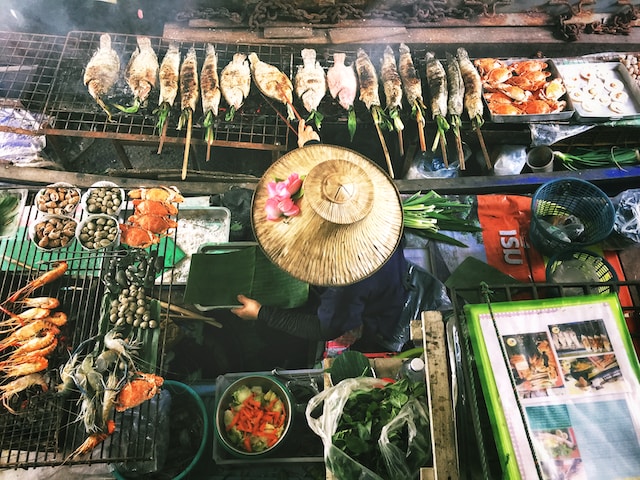
Conclusion And Final Thoughts On Why Bangkok Is A Must-Visit Destination For Digital Nomads
If you’re a digital nomad, Bangkok is an excellent destination that will satisfy all your needs. With its low cost of living, high-speed internet, and western conveniences, this buzzing city has something to offer for everyone.
Finding affordable accommodation and suitable workspaces is easy, and the abundance of great food and entertainment options make it a highly attractive place to live in.
Furthermore, with its rich cultural heritage and friendly locals, you can experience life like never before.
FAQs:
1. What are some popular co-working spaces for digital nomads in Bangkok?
Some of the popular co-working spaces for digital nomads in Bangkok include The Hive, Launchpad, and Hubba.
2. Is it easy to find affordable accommodation as a digital nomad in Bangkok?
Yes, there are plenty of affordable options for accommodation in Bangkok such as hostels or Airbnb rentals. However, it’s important to research and book accommodations that offer reliable Wi-Fi connections since this is crucial for remote work.
3. What are some must-see attractions or experiences for digital nomads in Bangkok?
Digital nomads can explore the city’s vibrant street food scene, visit cultural landmarks like the Grand Palace and Wat Phra Kaew temple complex, or take a day trip to nearby islands like Koh Samui or Phuket.
4. Are there any visa requirements for digital nomads staying long-term in Bangkok?
Yes, if you plan on staying longer than 30 days, you’ll need to obtain an appropriate visa from your home country’s Thai embassy or consulate before arriving in Thailand. Alternatively, some nationalities may be able to apply for visas upon arrival at certain airports but should check with their respective governments beforehand.
More FAQ’S
1. What are some must-visit places in Bangkok?
If you’re a tourist in Bangkok, some must-visit places include the Grand Palace, Wat Arun, the Chatuchak Weekend Market, and the Wat Phra Kaew (Temple of the Emerald Buddha).
2. Is Bangkok a good place for digital nomads?
Yes, Bangkok is a great place for digital nomads as it offers affordable living costs, high-speed internet, plenty of coworking spaces, cafes and coffee shops, and a great nightlife scene.
3. What is the cost of living in Bangkok?
The cost of living in Bangkok is relatively low compared to many other major cities in the world. You can easily live comfortably on a budget of $1,000 to $1,500 per month, which includes accommodation, food, transportation, and entertainment.
- Accommodation: Rent prices vary depending on the location, size, and type of accommodation. In central areas, the cost of a one-bedroom apartment can range from 10,000 to 30,000 Thai Baht (THB) per month, while outside the city center, it may be slightly lower.
- Utilities: Basic utilities, including electricity, water, and gas, for an average-sized apartment, can cost around 1,500 to 3,000 THB per month.
- Transportation: Bangkok has an extensive public transportation system, including buses, taxis, and the BTS Skytrain and MRT subway. The cost of a one-way ticket on public transport is typically between 15 to 60 THB, depending on the distance. Taxis start at around 35 THB, with additional charges for distance traveled and time spent in traffic.
- Food: Bangkok offers a wide range of dining options, from street food to upscale restaurants. On average, a meal at an inexpensive restaurant can cost around 60 to 150 THB, while a three-course meal for two at a mid-range restaurant can range from 500 to 1,200 THB.
- Groceries: The cost of groceries can vary depending on personal preferences and dietary choices. A basic weekly grocery shopping for one person can cost around 1,500 to 2,500 THB.
- Entertainment and leisure: Prices for entertainment activities like movies, concerts, and fitness clubs can vary. A movie ticket typically costs around 100 to 300 THB.
It’s worth mentioning that the cost of living may have changed since my knowledge cutoff, and it’s always recommended to consult up-to-date sources or seek advice from locals or expatriates living in Bangkok for the most accurate information.
4. Where can I find a digital nomad guide to Bangkok?
You can find several digital nomad guides to Bangkok online, such as the “Bangkok Digital Nomad Guide” or “The Ultimate Digital Nomad Guide to Bangkok”. These guides offer valuable information on coworking spaces, cafes, accommodation, visa requirements, and more.
5. What are some of the best coworking spaces in Bangkok?
There are several great coworking spaces in Bangkok, such as Hubba, The Hive, Launchpad, and Glowfish. These spaces offer high-speed internet, meeting rooms, and other amenities tailored to the needs of digital nomads.
6. Is Chiang Mai a better place for digital nomads than Bangkok?
While Chiang Mai is also a great place for digital nomads, it ultimately depends on your personal preferences. Chiang Mai is more laid-back and has a lower cost of living than Bangkok, but Bangkok offers more amenities and a more bustling city atmosphere.
7. What is the best way to get around Bangkok?
Public transport in Bangkok is relatively cheap and efficient. The BTS Skytrain is a great option for getting around the city quickly, and the MRT subway system is also a good choice. Taxis and tuk-tuks are also readily available, but make sure to negotiate the fare beforehand
